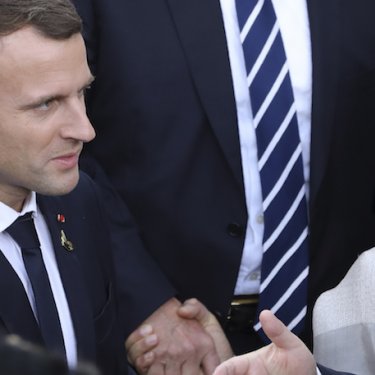Chinese regime’s true face – one of the worst free speech predators

As the Chinese government tries to project the image of a modern, powerful nation with a great future for French President Emmanuel Macron’s visit, Reporters Without Borders (RSF) points out that China is one of the world’s worst countries as regards respect for the freedom to inform.
President Xi Jinping is receiving Macron with great fanfare, and hopes that little attention will be paid to the delicate issue of the systematic human rights violations on which his rule is based. RSF nonetheless reminds all concerned that China is ranked very near the bottom of the RSF World Press Freedom Index – 176th out of 180 countries.
At least 15 professional journalists and 39 citizen-journalists are currently detained in China, according to RSF’s latest tally. The government no longer sentences press freedom defenders to death but it gives them long jail terms and has a deliberate policy of mistreating them and denying them medical care while they are detained.
Both Liu Xiaobo, the 2010 Nobel peace laureate, and Yang Tongyan, a blogger, died last year from cancers that were left untreated while they were detained. The artist Liu Xia (Liu Xiaobo’s widow) and the journalist Huang Qi, a 2004 RSF Press Freedom laureate and founder of the 64 Tianwang website (which was awarded the RSF prize in 2016), are currently detained in isolation and in such appalling conditions that colleagues fear for their lives.
“While France can justify developing its relations with China, it cannot ignore the massive violations of the freedom to inform,” said Cédric Alviani, the head of RSF’s East Asia desk. “We count on President Macron to firmly remind the Chinese of France’s commitment to the principles of the Universal Declaration of Human Rights and to press for the release of prominent detainees such as Liu Xia and Huang Qi.”
New world information order
Under President Xi, Internet surveillance has come to be practiced on an industrial scale and the Great Firewall keeps 750 million Internet users away from foreign news websites. At least 2 million people are employed to censor and spy on them, that is to say, one censor for every 375 Internet users. Several people received jail sentences last year for comments posted online or made during private chats on messaging services.
In a recent opinion piece published in seven languages, RSF secretary-general Christophe Deloire urged the world’s parliamentary democracies to take a stand against the danger of contamination by China’s repressive model.
It is no longer just a question of Chinese “internal policy,” as the government claims. In practice, China is doing more and more to project its “new information order” internationally, an order based on censorship and surveillance, one that leaves no room for journalistic ethics and the public’s right to information.



